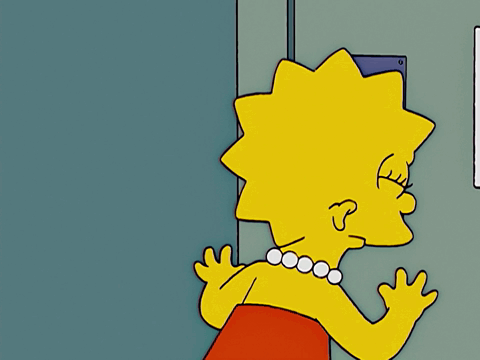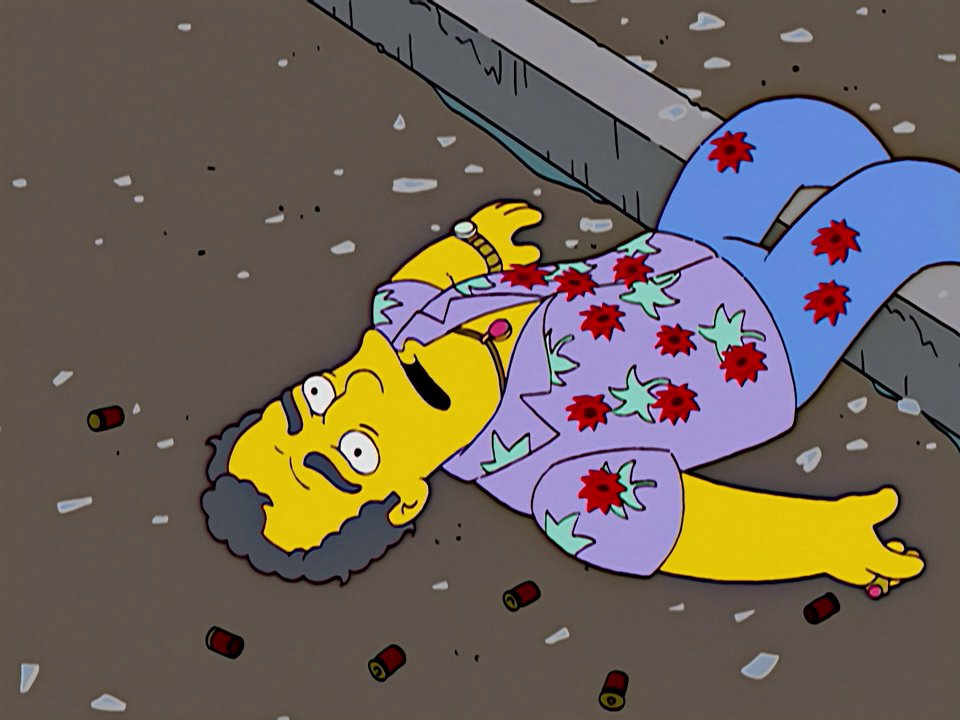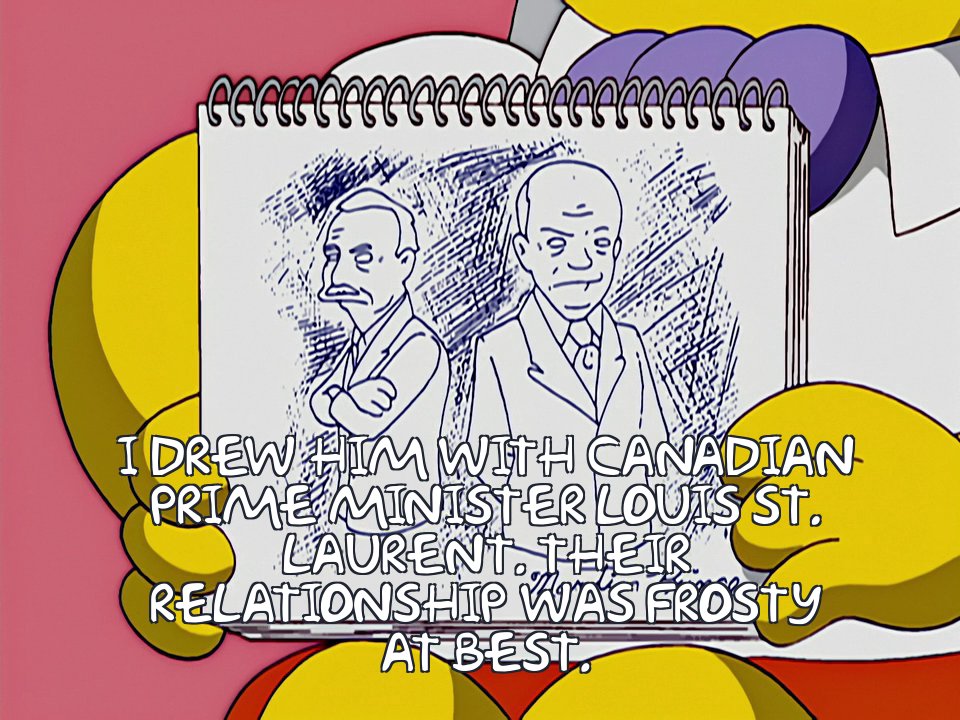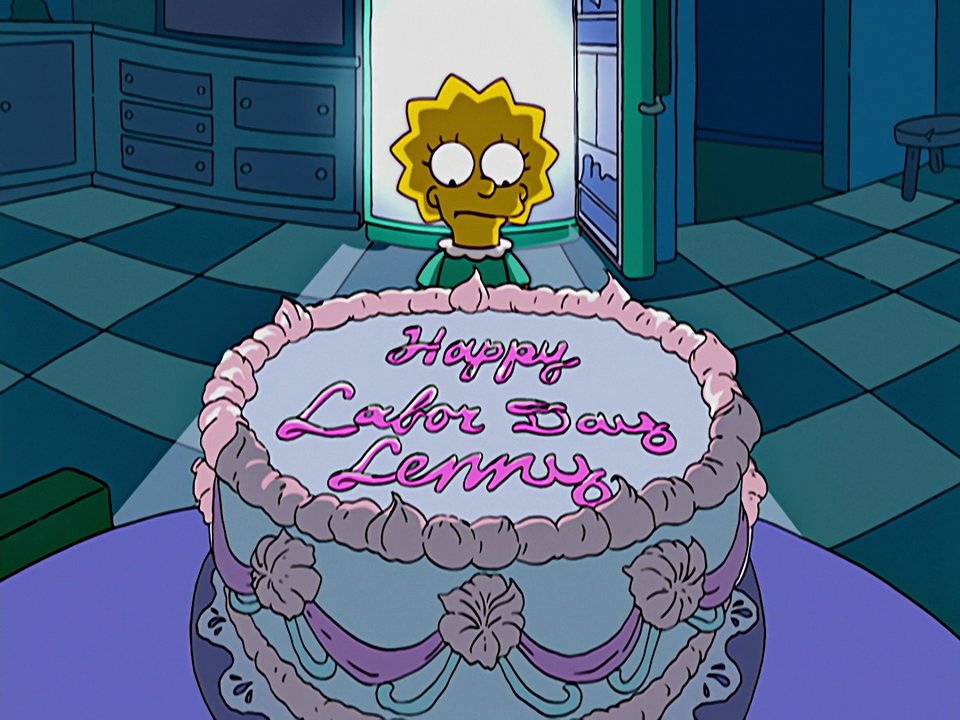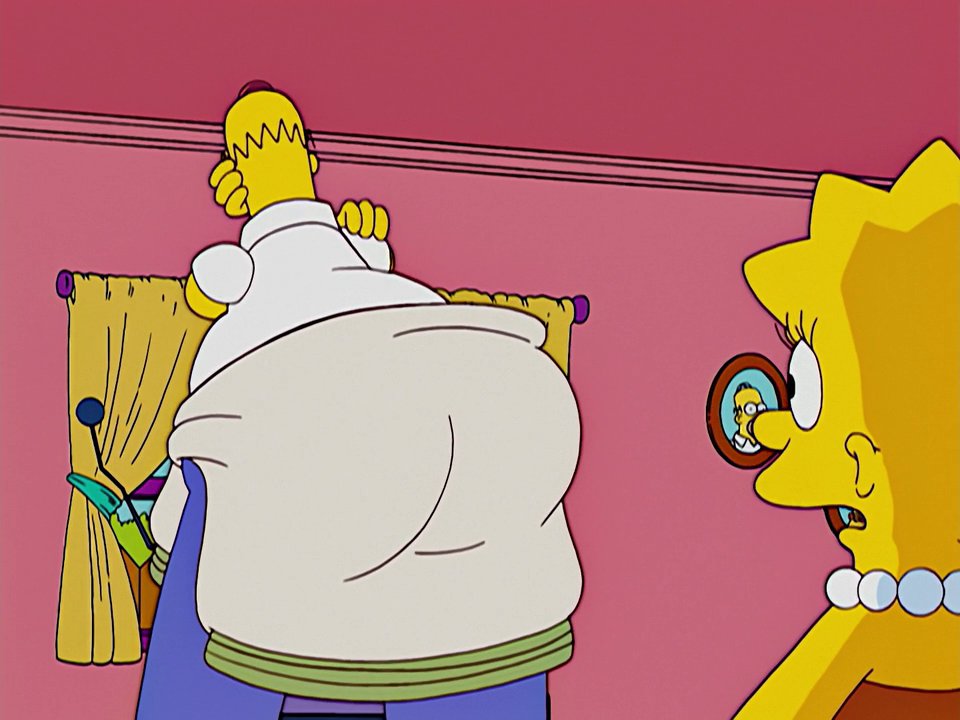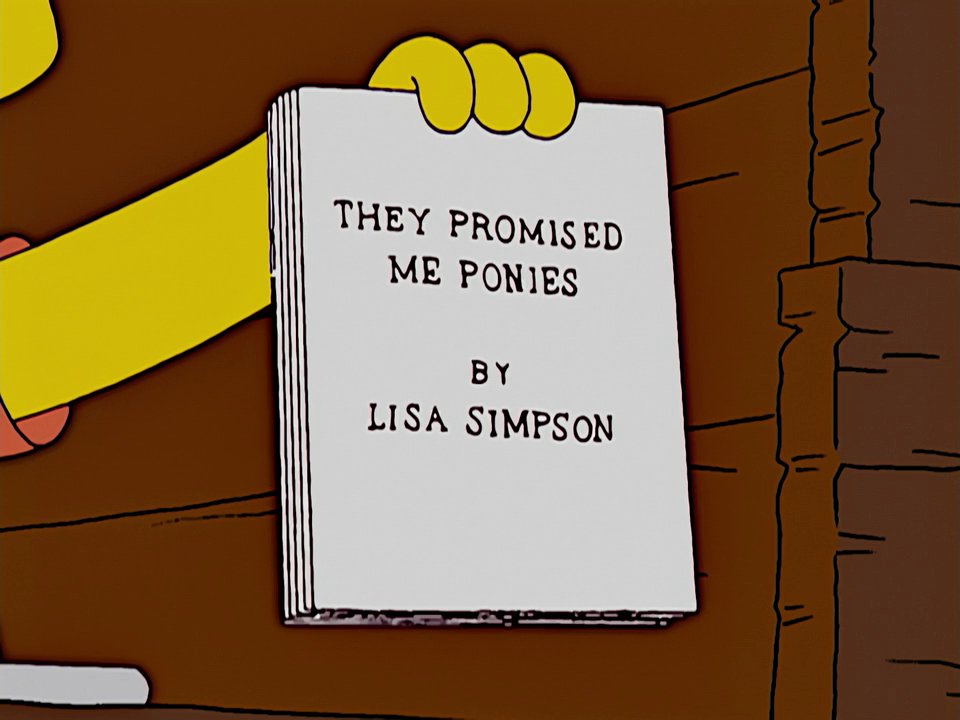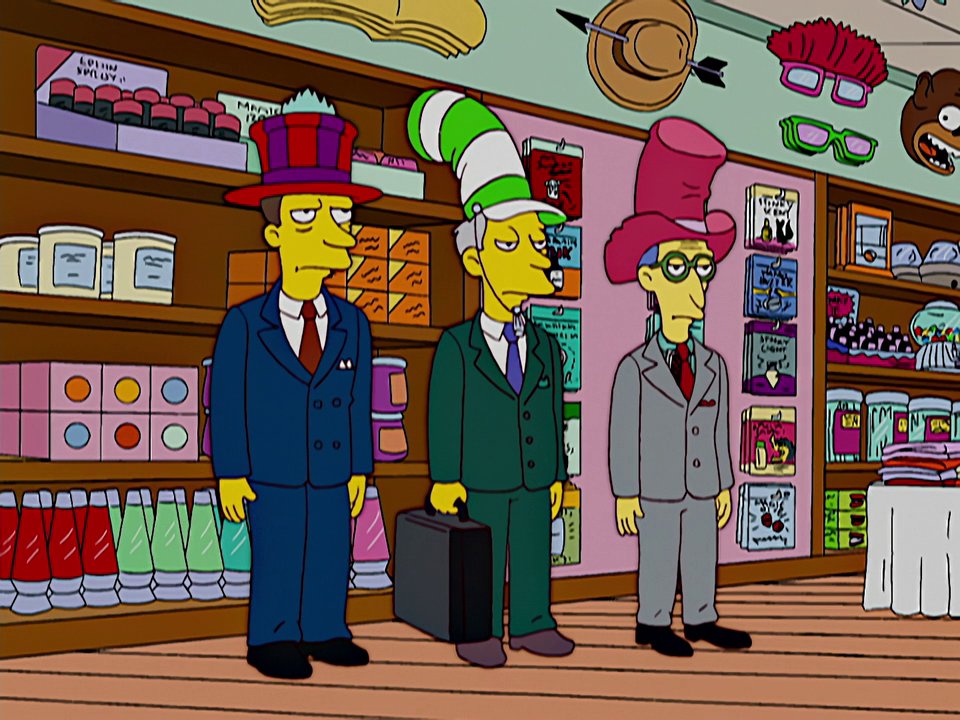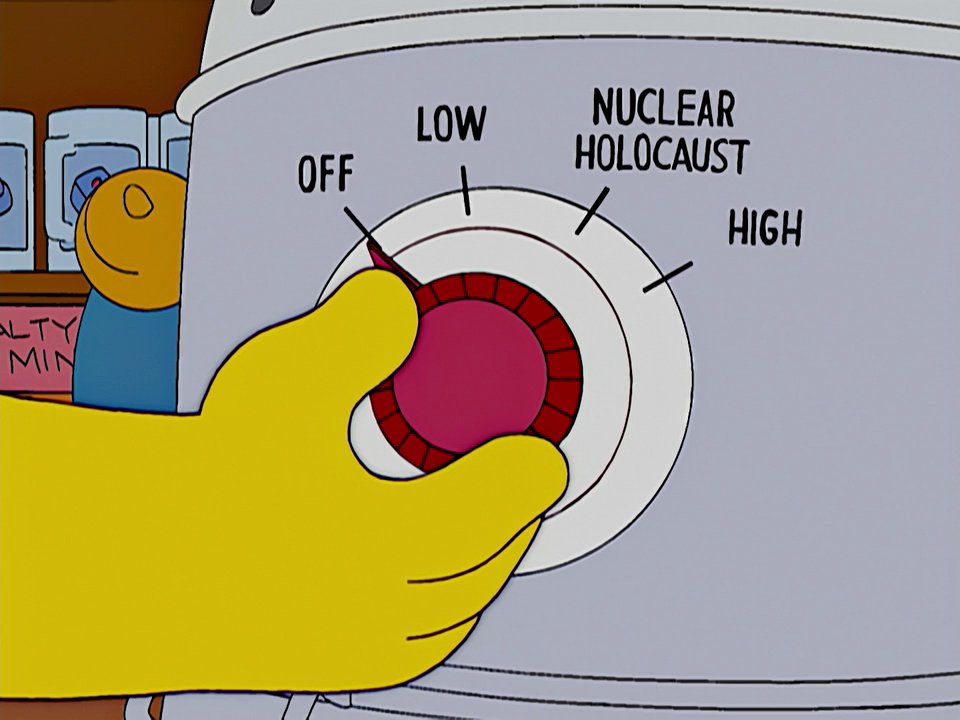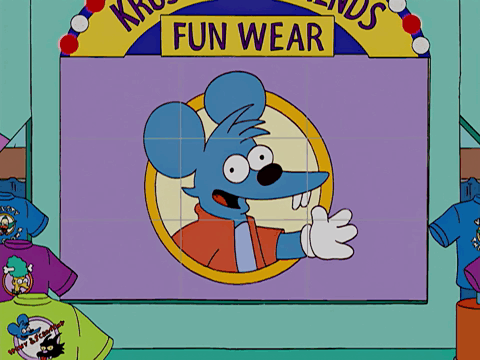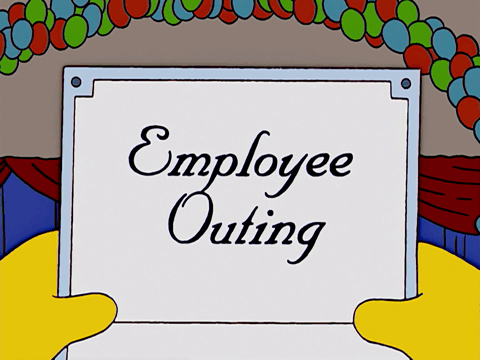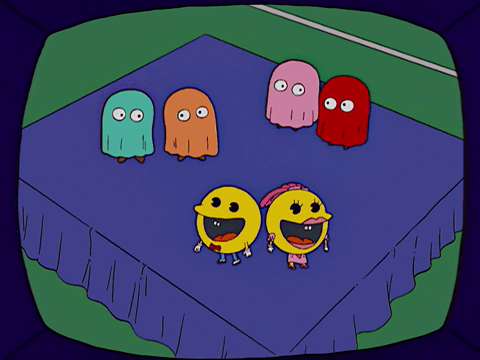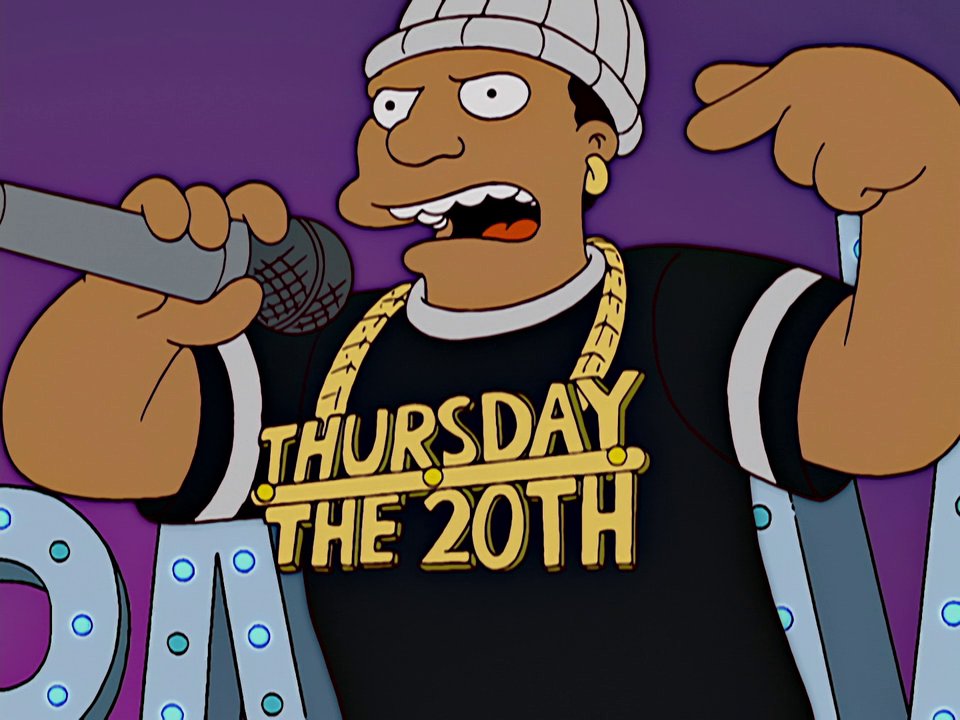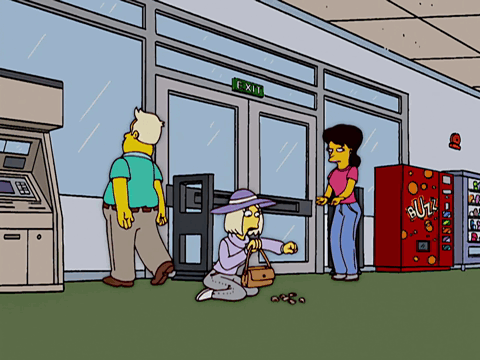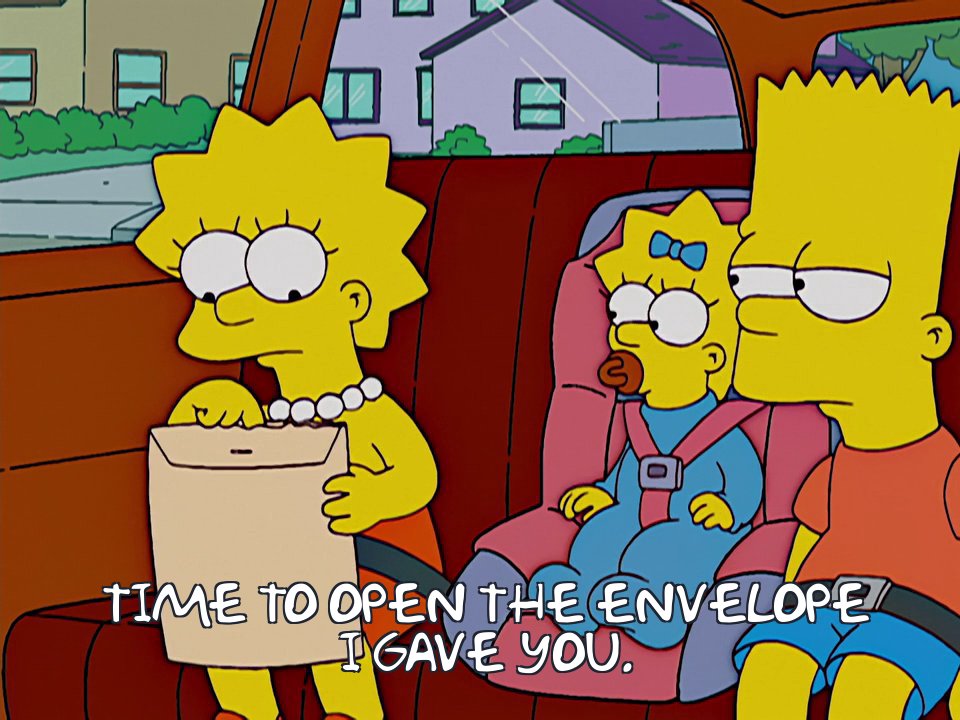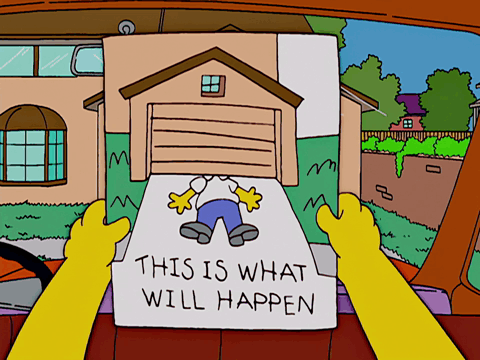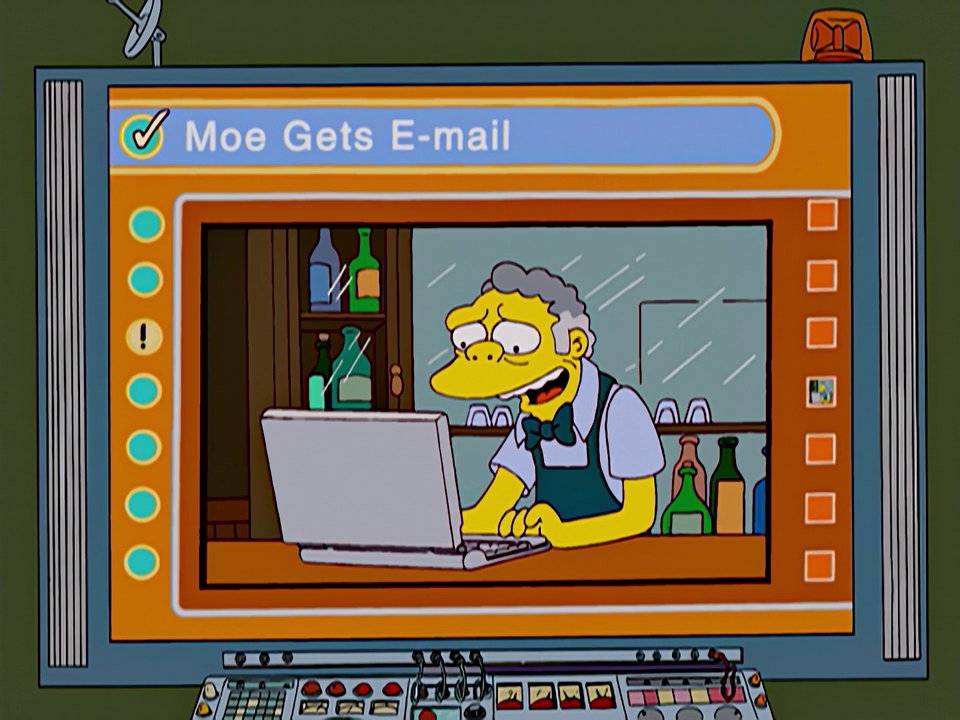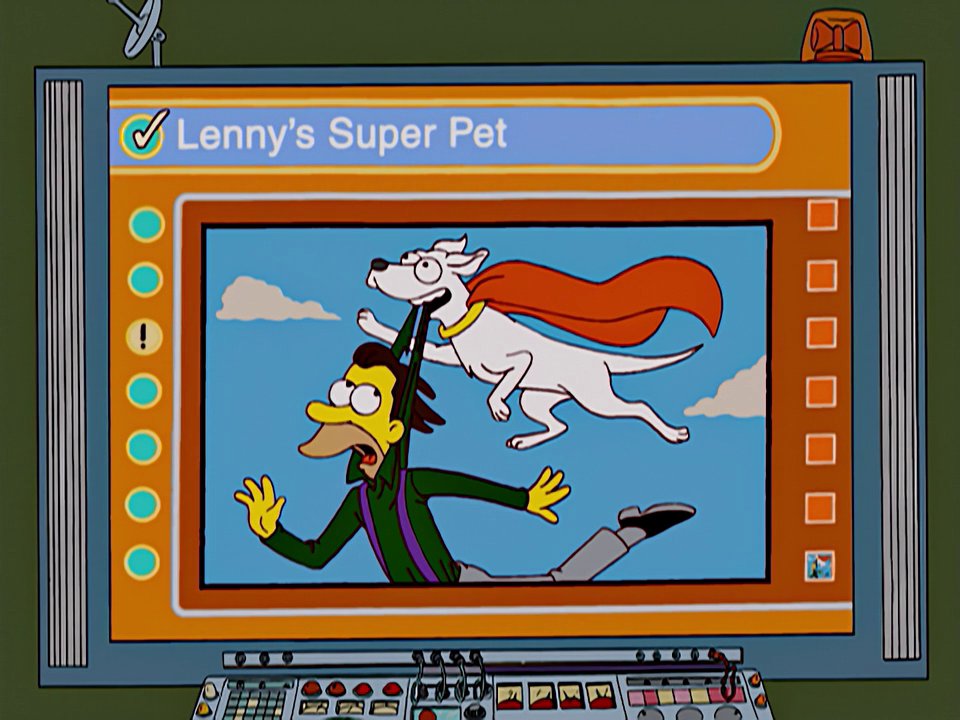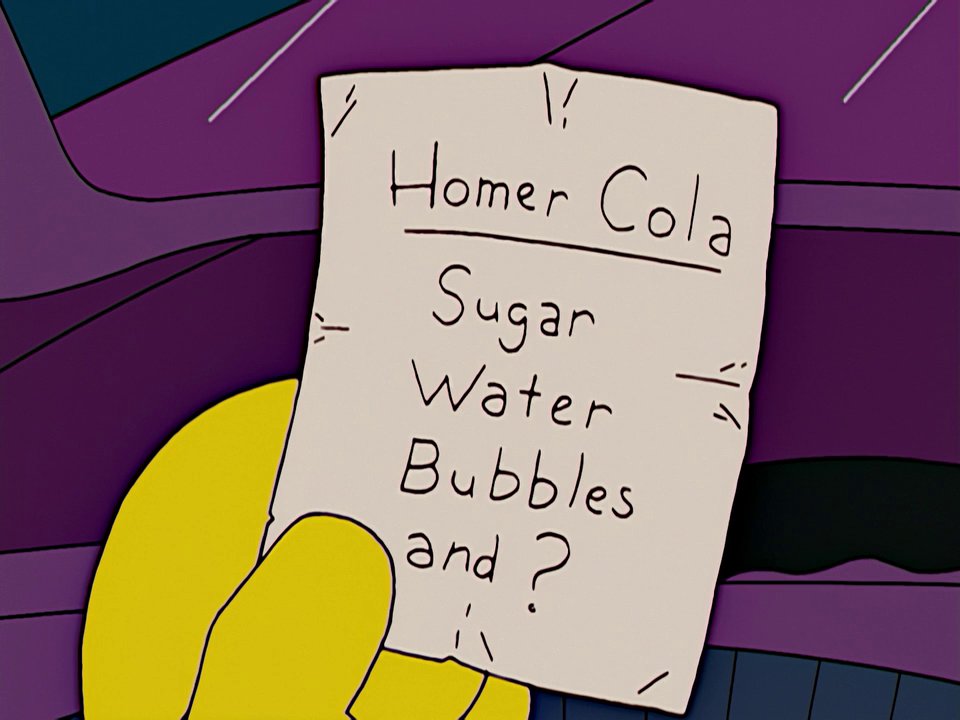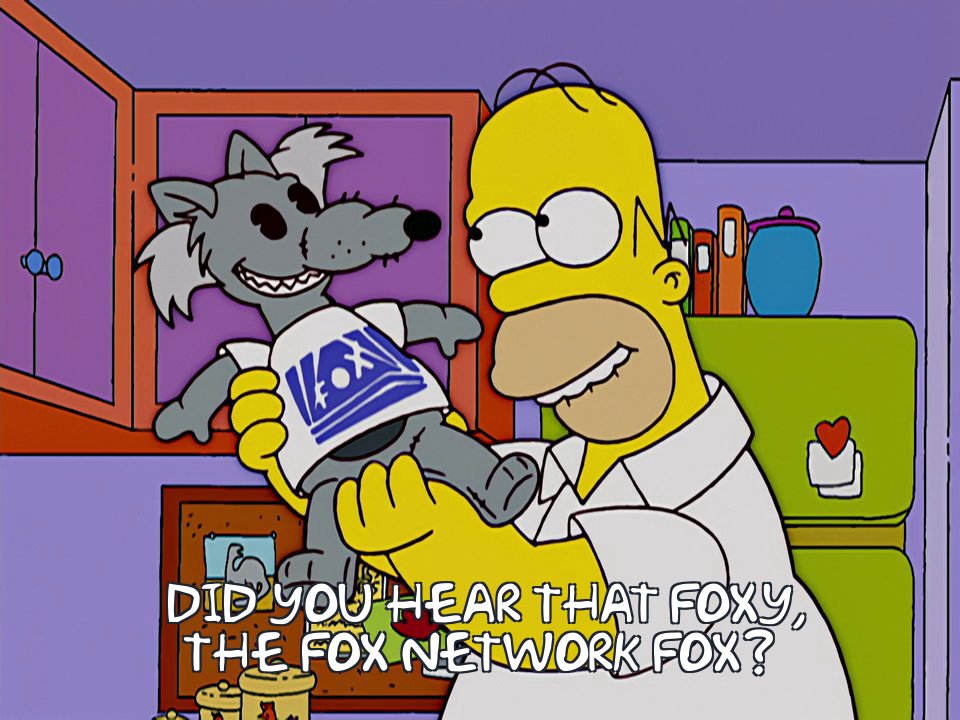Johnny Unusual
(He/Him)
Treehouse of Horror XV
Whew, 15 seasons down, 18 to go. That's... dispiriting. OK, season 16. Let's do this!
In this episode, we have another series of Halloween tales. In a parody of The Dead Zone, Flanders gets in an accident and gains the ability to see the future... and sees himself murdering Homer. When he seemingly manages to avoid the fate, he realizes Homer is destined to destroy Springfield and ends up with no choice but to kill him to stop him... only to fail and have all of Springfield going to Heaven. In a parody of Sherlock Holmes, Lisa is a detective hunting down the Muttonchop Murderer, who is stabbing prostitutes to death in 19th Century London. In the end it turns out to be Inspector Wiggum, jealous of Lisa's popularity. Then in the final tale, a parody of Fantastic Voyage, Maggie is accidentally shrunk down and swallowed by Mr. Burns at a science exhibit. Prof. Frinks shrinks the Simpsons to rescue her, which they eventually do. However, Homer must stay behind to save Maggie and ends up growing inside Burns, turning them into a bizarre, two-headed monstrosity, which they learn to live with.
The first story, The Ned Zone, is the best of the three. Perhaps because it is slowly setting up it's premise it feels like it ends just as it gets going and feels a bit slight because of it but none-the-less the jokes mostly work and it has fun with it's premise. I feel like the Rosie O'Donnell slam is one of those "current pop culture" slams that don't work for me, mostly because it feels like it's a construct were you could sub in countless people and it would be the same joke and one that isn't particularly strong. Despite this, I feel like it does good with a recurring joke that pays off and has a bit of fun with it's premise, even with the limited time.
The second story, Four Beheadings and a Funeral, is a Sherlock Holmes parody and a general Victorian England goof. Even though I don't like it as much as the last one, if does feel like a segment where there's more circumstance and plot but perhaps that's why it's a little lacking. Also, some of the cast are doing accents and it seems like Yeardley and Julie are having fun with them. The accents are clearly meant to be goofy but even in that respect, Smith sounds a bit too odd at times. The look is also the best of the three segments, with a pretty well realized London, clearly a labour of love of the genre of Victorian thrillers.
The last story,. In the Belly of the Boss, is my least favourite of the three. I think there's only one joke I really like and even then it feels more like a "hey, here's a reference for you, comic dork" than a good one. My least favourite parts are the direct references to the original film, particularly putting Marge in a sexy costume and having her clothes sexily ripped off. Though not particularly funny, I do appreciate the decision to end it mirroring the two-headed Homer and Burns from the second Treehouse without being too on the nose about it.
Other great jokes:
I like Marge calling Kang and Kodos octopuses.
The frisbee runner really pays off in my opinion.
"Don't do it! Don't do it! You'll kill everyone!"
"*fzzt* do it! *fzzt* do it! *fzzt* kill everyone!"
"Man, it's taking me a long time to push this button."
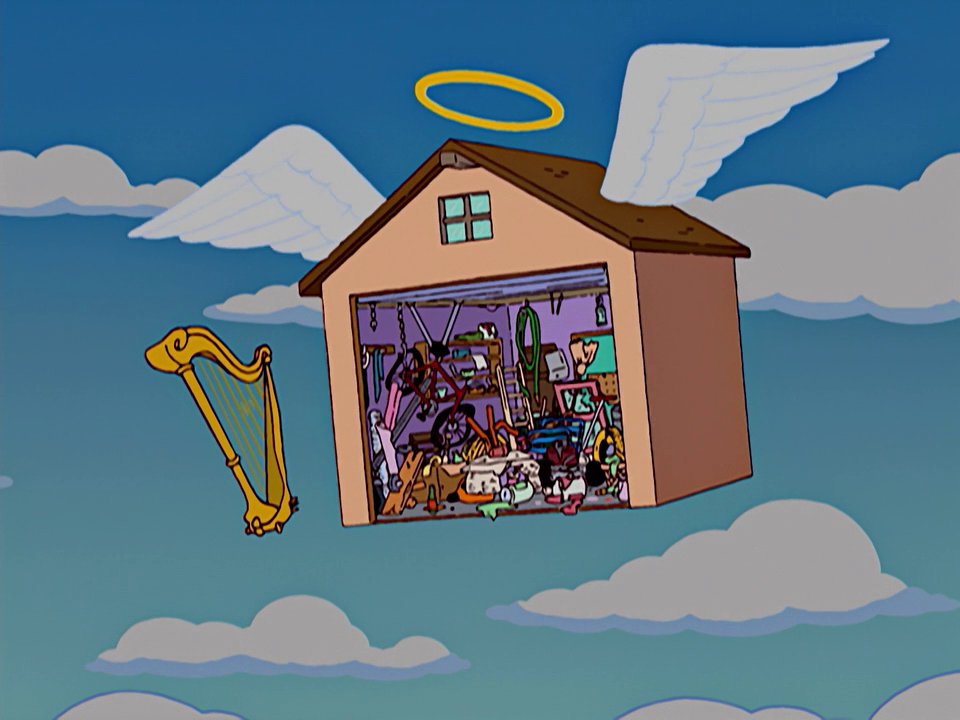
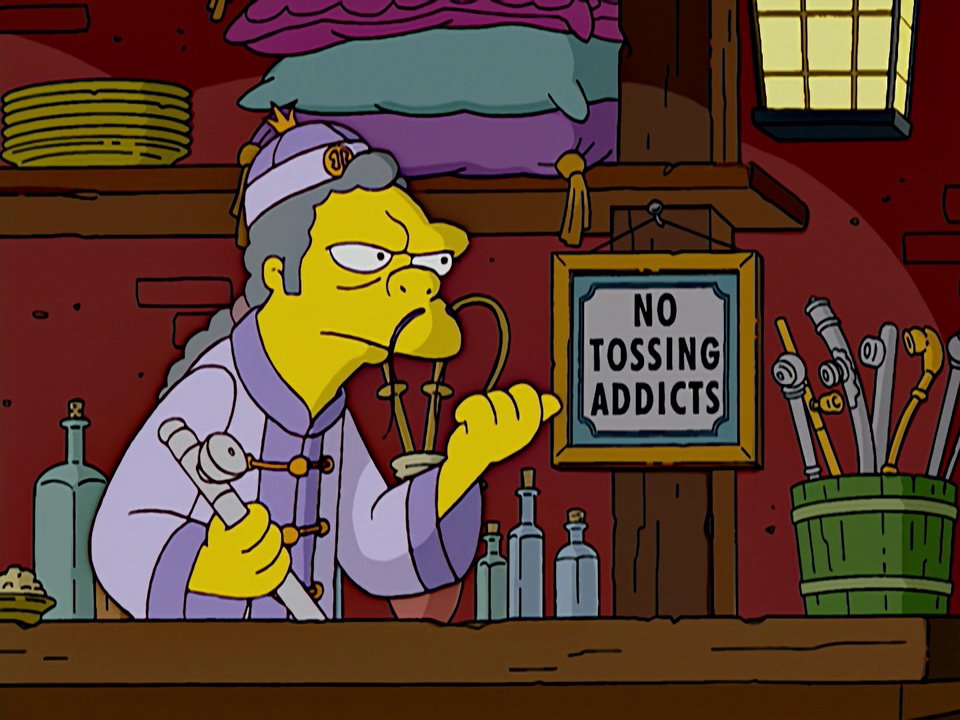
The sign is funny in context. Moe dressed like that? Nnnnnot so much.
"I'm not a murderer, I'm not. And I've never learned the touch of a woman. Or a proper-eating apple."

That's some good pandering to me.
Other note:
I do like any excuse to hear the theme song to Perfect Strangers.
Whew, 15 seasons down, 18 to go. That's... dispiriting. OK, season 16. Let's do this!
In this episode, we have another series of Halloween tales. In a parody of The Dead Zone, Flanders gets in an accident and gains the ability to see the future... and sees himself murdering Homer. When he seemingly manages to avoid the fate, he realizes Homer is destined to destroy Springfield and ends up with no choice but to kill him to stop him... only to fail and have all of Springfield going to Heaven. In a parody of Sherlock Holmes, Lisa is a detective hunting down the Muttonchop Murderer, who is stabbing prostitutes to death in 19th Century London. In the end it turns out to be Inspector Wiggum, jealous of Lisa's popularity. Then in the final tale, a parody of Fantastic Voyage, Maggie is accidentally shrunk down and swallowed by Mr. Burns at a science exhibit. Prof. Frinks shrinks the Simpsons to rescue her, which they eventually do. However, Homer must stay behind to save Maggie and ends up growing inside Burns, turning them into a bizarre, two-headed monstrosity, which they learn to live with.
The first story, The Ned Zone, is the best of the three. Perhaps because it is slowly setting up it's premise it feels like it ends just as it gets going and feels a bit slight because of it but none-the-less the jokes mostly work and it has fun with it's premise. I feel like the Rosie O'Donnell slam is one of those "current pop culture" slams that don't work for me, mostly because it feels like it's a construct were you could sub in countless people and it would be the same joke and one that isn't particularly strong. Despite this, I feel like it does good with a recurring joke that pays off and has a bit of fun with it's premise, even with the limited time.
The second story, Four Beheadings and a Funeral, is a Sherlock Holmes parody and a general Victorian England goof. Even though I don't like it as much as the last one, if does feel like a segment where there's more circumstance and plot but perhaps that's why it's a little lacking. Also, some of the cast are doing accents and it seems like Yeardley and Julie are having fun with them. The accents are clearly meant to be goofy but even in that respect, Smith sounds a bit too odd at times. The look is also the best of the three segments, with a pretty well realized London, clearly a labour of love of the genre of Victorian thrillers.
The last story,. In the Belly of the Boss, is my least favourite of the three. I think there's only one joke I really like and even then it feels more like a "hey, here's a reference for you, comic dork" than a good one. My least favourite parts are the direct references to the original film, particularly putting Marge in a sexy costume and having her clothes sexily ripped off. Though not particularly funny, I do appreciate the decision to end it mirroring the two-headed Homer and Burns from the second Treehouse without being too on the nose about it.
Other great jokes:
I like Marge calling Kang and Kodos octopuses.
The frisbee runner really pays off in my opinion.
"Don't do it! Don't do it! You'll kill everyone!"
"*fzzt* do it! *fzzt* do it! *fzzt* kill everyone!"
"Man, it's taking me a long time to push this button."


The sign is funny in context. Moe dressed like that? Nnnnnot so much.
"I'm not a murderer, I'm not. And I've never learned the touch of a woman. Or a proper-eating apple."

That's some good pandering to me.
Other note:
I do like any excuse to hear the theme song to Perfect Strangers.
